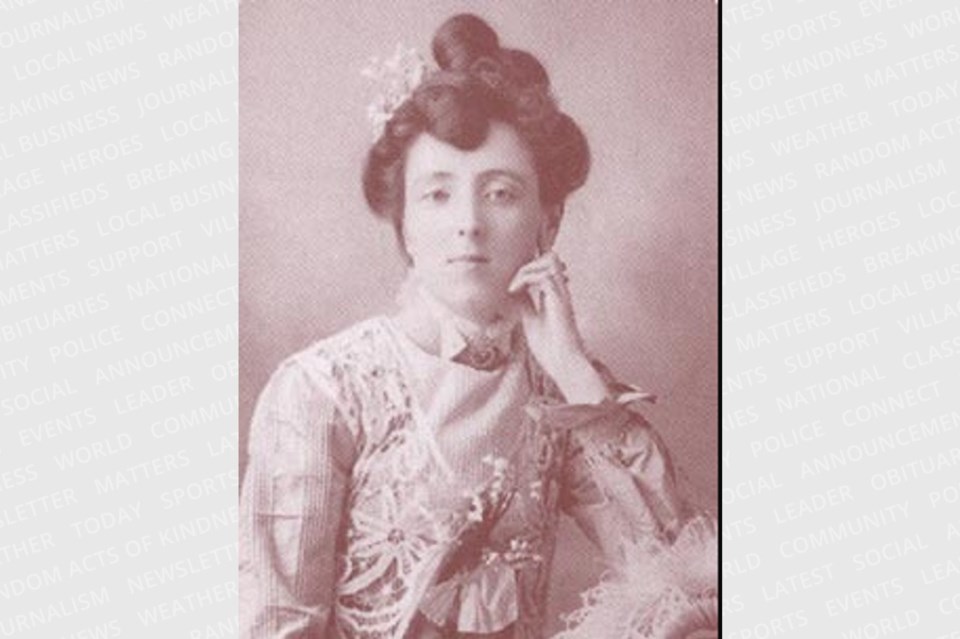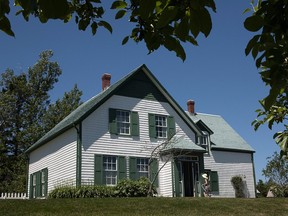Re-Engineering the Social Narrative in Literature
"Through 2033, the number of opportunities at the site to engage visitors in learning about and connecting to a diversity of cultures will increase.""The themes of friendship and belonging are central to the popularity of L.M. Montgomery's Anne of Green Gables.""Parks Canada is committed to engaging with Indigenous and marginalized communities to tell their stories."Parks Canada -- Anne of Green Gables strategic outline
 |
| Author Lucy Maud Montgomery is shown in an undated photo. |
The iconic story of a young girl growing up on Canada's Prince Edward Island is a endearing story, widely read, honoured and translated into many languages as a heartfelt, gracious and compelling coming-of-age that readers' hearts snuggled into for warmth and compassion. During Japan's postwar occupation a Japanese translation of the story represented one of the first novels outside the Japanese experience published and made available to readers in Japan. Anne of Green Gables has a fond place as a cherished story in Japan; a Canadian suddenly coming upon a replica of the Green Gables site in Tokyo would be astonished. I was.
There one would encounter the freckle-faced little girl with green eyes and red hair larger than life. Parks Canada has recently announced its commitment to make Anne more 'accessible' and relevant , including narratives from "marginalized communities". So Anne of Green Gables will no longer be the touching novel familiar to readers the world over, but one that has been 'enhanced' by the woke folk at Parks Canada, an arm of the federal government, given to inclusion, diversity and equality. Tampering with an authentic creation to have it reflect what its author at the turn of the 20th century obviously overlooked.
The agency outlined its goal to present "new narratives, perspectives and voices" in a 23-page outline of their intentions at Anne of Green Gables sites on Prince Edward Islands, to reflect voices of "cultures not currently presented." All part of a new management plan for the Cavendish National Historic Site with two locations on the north end of Prince Edward Island with ties to the author of the series. First, the farmhouse where Lucy Maud Montgomery grew up; the second, the Green Gables farmstead referred to in her novels.

Lucy Maud Montgomery lived in a quite homogeneous environment, almost exclusively comprised of people of English, Scottish or Irish descent. However, according to the Confederation Centres of the Arts, in 19th century P.E.I. Indigenous people, Mi'kmaq families, had a presence; they were "not quite invisible". They seem a natural subject for Anne's romantic imagination, but they are curiously absent from her world. And perhaps that is because the esteemed author wrote what she was familiar with, as any writer would. It is her experience and her voice that readers responded to.
Now, in this woke, DEI, Critical Race Theory world, Lucy Maud Montgomery, a century after she wrote her beloved series, is accused of being a purveyor of colonialist white supremacy. Even her namesake L.M. Montgomery Institute hosted a conference of scholars who "have experience discussing Montgomery's work in connection to conversations on queer theory and gender, colonialism and diversity in literature". If she were alive today she would be open-mouthed with astonishment. She would not have known any of these issues in her day.
 |
Labels: Anne of Green Gables, Literary Revisionism, Lucy Maud Montgomery, Parks Canada, Social Re-Engineering

0 Comments:
Post a Comment
<< Home